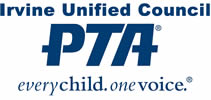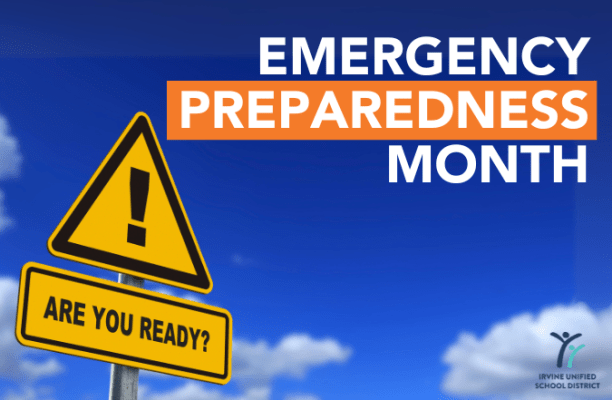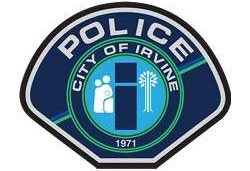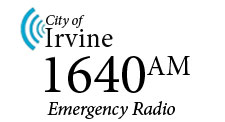Health & Safety
Community Resources & Support
Mental Health
Community Resources
IUSD Family Counseling Center
Short-term, solution-focused individual and family therapy, resource linkage and referrals, and parent education/support groups to IUSD families K-12.
(949) 936-8775
Care Solace
Mental Health Concierge Services to connect families to outside resources.
Say Something
Say Something Anonymous Reporting System enables students to seek support anonymously for themselves or for friends.
Hoag Community Mental Health
Psychotherapy, psychoeducation, case management, psychiatric services, and Intensive Outpatient Program (IOP) to uninsured and underinsured OC families. Can provide services in English, Spanish, or Farsi.
(949) 764-6542
Children and Youth Services (CYS) – Central Region
Outpatient mental health clinic providing individual, group and family therapy, medication support, crisis intervention, family education and case management.
Cost: Sliding scale fee
(714) 850-8408
Western Youth Services
Mental and behavioral health counseling, addiction, advocacy, support and housing.
Cost: Sliding scale fee
(888) 312-0406
INTENSIVE MENTAL HEALTH SERVICES
UCI Adolescent Mental Health
Address mental health needs of students with insurance coverage.
(714) 456-2924
Mission Hospital
IOP for ages 14-17 affected by substance use and psychological problems.
(949) 364-4246
Other:
- NAMI OC
- OCDE Reset Toolbox
- California PTA
- National PTA Health & Safety
Behavioral
Parenting resources
Regional Center of OC
Behavior Management/Social Skills Workshops. Free 5-part series in English, Spanish, and Vietnamese, 5th session addresses toilet training.
(714) 796-5223
OCHCA, Behavioral Health Services
Provides parenting education to the community. Two differing curricula focuses on strengthening families by educating parents, adolescents, and children in a 12-week course. The program is offered at community sites throughout Orange County, in English and Spanish and provides child care. Parent Project focuses on challenging teenagers. Strengthening Families focuses on children aged 7-17.
(714) 480-4678
Child Abuse Prevention Center
Free 10-week course for parents whose children are birth – 12 years of age. Free child care at some sites.
(855) 955-5900
PARENTING TRAINING
Child Guidance Center (CGC)
PCIT (Parent-Child) Interaction Therapy). The child and parent are observed behind a one-way mirror. The parent is coached through an earpiece on how to handle challenging behaviors. For ages 2-10, provided in English and Spanish. Funded by Medi-Cal or CGC funding, if the family qualifies.
(714) 953-4455
Hotlines & Online
Orange County Suicide Prevention/Crisis Line
Confidential 24-hour telephone counseling to individuals contemplating, threatening, or attempting suicide.
(877) 7-CRISIS or (877-727-4747)
The OC Warm Line
Non-crisis, caring support for anyone struggling with emotional/mental health challenges.
Call or Text: (714) 991-6412
Toll Free: (877) 910-WARM or (877-910-9276)
211 & OC Links Information & Referral Services
Free 24 hr information and referral line linking to thousands of local health and human service programs in the OC.
2-1-1 (855) OC-LINKS or (888-625-4657)
National Institute of Mental Health (NAMI)
Helpline and family resources and groups for those affected by mental illness.
1 (800) 950-NAMI or (800-950-6264)
Teen Crisis Hotline
1 (800) 448-3000
24 Hour Sexual Assault Hotline
24/7, 7 days a week.
(714) 957-2737
Suicide Prevention & Crisis
Say Something
Anonymous Reporting System. A downloadable app, telephone hotline, and website that students can use to report a classmate who may be at risk of harming themselves or others.
Irvine Police Department
(949) 724-7000
Centralized Assessment Team (CAT)
Suicide assessment of children and referral linkage to families.
(866) 830-6011
Didi Hirsch
Crisis line, outreach and survivor support services for family members of a person who committed suicide.
(714) 547-0885
Grief / Bereavement
- Coalition to Support Grieving Students Website
- Coalition to Support Grieving Students – Talking with Children (PDF)
- National Institute of Mental Health – Helping Children Cope with Violence
- Orange County Department of Education – Five Tips for Helping Children Cope with Violence
- CA PTA Resources
- Grief-Sensitive Schools Initiative
- New York Life Resources
- National Center for School Crisis and Bereavement
- Eluna – Camps
- Dougy Center – Find Support
- First Book
- Flyer on National Center for School Crisis and Bereavement (NCSCB)
- Flyer on Suicide and Grief counseling
LGBTQIA
The Center OC
Individual, group, and family therapy to Orange County residents.
Cost: Sliding scale fee
(714) 953-5428 x330
Trevor Project
Crisis and suicide intervention through chat and text.
(866) 488-7386
Community Counseling & Supportive Services (CCSS)
Free individual, family counseling and support services.
(714) 645-8000
PFLAG
Support meetings, education and advocacy.
(949) 424-3987
Cultural
Orange County Asian Pacific Islander Community Alliance (OCAPICA)
Individual counseling and wraparound support in-home. Also offers services in all Asian languages. Available to all; do not need to be Asian heritage to receive services.
(714) 636-9095
Multi-Ethnic Collaborative of Community Agencies (MECCA)
Counseling services, education, and outreach to address mental health needs of low-income families.
Korean Community Services: (714) 527-6561
OMID (Farsi speaking): (949) 502-4721
Catholic Charities of Orange County
Individual and group counseling to all.
Cost: $25-$50
(714) 347-9602
Conversations about Race, Racism & Discrimination
Talking About Race
National Museum of African American History & Culture
Talking to Young Children about Race and Racism
PBS Kids for Parents
Talking to Kids about Discrimination
American Psychological Association
Talking to Kids about Racial Stereotypes – Tip Sheet
Media Smarts
Shelters & Housing
SHELTERS
Waymakers Teen Shelter
Short-term, crisis intervention to homeless, runaway, and at-risk youth in OC, Emergency shelter, 24 hour supervision, individual, group, and family counseling.
Tustin: (714) 714-0780
Laguna Beach: (949) 494-4311
Huntington Beach: (949) 842-6600
Casa Youth Shelter
Short-term and long-term placement programs to provide basic needs for youth and individual, group, and family counseling.
1 (800) 914-CASA or (800-914-2272)
Hope Harbor
Temporary housing and care for teen girls 12 – 17 who are runaways or at risk for homelessness because of volatile family situations. Need willingness and participation from both teen and parents. Need to call to initiate intake process to determine eligibility and suitability to program.
(714) 832-0207
Family Promise of Orange County
Emergency shelter for families.
(714) 787-3487
HOUSING RESOURCES
Families Forward
Help families achieve and maintain self-sufficiency through housing, food, counseling, education, and other support services to OC families.
(949) 552-2727
FOR Families
Information, referral services, and short-term support for anyone living or working in Irvine needing assistance with services and resources.
Cost: Free for Irvine residents: $25 for non-residents.
(949) 724-6650
Orangewood Foundation Resource Center
Offers comprehensive supports (housing, job training, food, hygiene, and clothing items) for families experiencing homelessness.
(714) 619-0200
Project Hope Alliance
Education and support for homeless families.
(949) 722-7836
Food Banks & Pantries
IUSD’S Community Feeding Program
USD’s Nutrition Services continues to provide meals for students enrolled in both IVA and on campuses for in-person instruction.
(949) 936-6520
Operation School Bell Announcement 2024-25
Assistance League® of Irvine will launch our annual Operation School Bell Program (OSB) in July, which provides new school clothes, hygiene kits, backpacks, and a book to
income qualified IUSD students. The OSB online application will be active on the Assistance League of Irvine website beginning Wednesday, July 17, 2024, until our funding is expended.
Peace Center
Grocery assistance available by appointment or walk in.
(949) 609-8210
South County Outreach
Food pantry available by appointment only.
(949) 380-8144
Families Forward
Food pantry available by appointment only.
(949) 552-2727
Second Harvest Food Bank
Offers holiday grocery assistance.
(949) 653-2900
Mary’s Kitchen
Free hot holiday meals to anyone in need.
(714) 633-0444
Mariners Church Irvine
Holiday events and assistance to families.
(949) 769-8100
Salvation Army
Holiday food vouchers and gifts to families with children.
(714) 384-0481
Substance Abuse & Support
OUTPATIENT SERVICES
OC Revive
Substance Abuse and Mental Health Treatment for teens aged 12-18.
(844) 954-2770
Twin Town Treatment Centers
Intensive outpatient services, coordination of care, family education and counseling, and relapse prevention.
(866) 594-8844
Substance Abuse and Mental Health Services Administration (SAMHSA) National Help Line
SAMHSA’s National Helpline is a free, confidential, 24/7/365 treatment referral and information service (in English and Spanish) for individuals and families facing mental and/or substance use disorders.
1 (800) 662-HELP or (800-662-4357)
INPATIENT SERVICES
Phoenix House
Adolescent inpatient drug residential and mental health treatment facility.
Cost: Sliding scale fee
(888) 671-9392
SUPPORT GROUPS
Alcoholics Anonymous
Group meetings for individuals of different ages and genders battling alcohol related concerns.
(714) 556-4555
Al-Anon/Ala-Teen
Group meetings and resources for young people and adults of different ages and genders whose lives have been affected by someone else’s drinking.
(714) 748-1113
Student Programs
Find out more about stopping fentanyl overdose:
Find out more about Marijuana health effects on teens, including dependence:
Find out more about gun violence prevention:
Find out more about youth vaping epidemic and risks:
Other Resources
Community Concerns
Active Shooter
If an active shooter situation happens at a school, parents play a crucial role in helping ensure the safety of their children and assisting authorities in managing the situation effectively. Here are some best practices for parents to follow:
1. Stay Calm and Informed
- Do not rush to the school: Your first instinct may be to go to the school, but this can interfere with law enforcement and emergency responders. Instead, wait for official communication from the school or authorities.
- Monitor reliable information sources: Follow official school communications, local law enforcement, or trusted news outlets for accurate updates. Schools often use automated messaging systems to keep parents informed.
2. Avoid Overloading Communication Channels
- Refrain from calling your child’s phone: While it may be difficult, calling your child during an active shooter situation can distract them or reveal their location if they are trying to hide.
- Use text messages instead: If you need to communicate, send short, calm text messages like “Stay safe. I love you. Listen to your teachers.”
3. Follow Reunification Protocols
- Understand the school’s reunification plans: Schools typically have predetermined locations where parents can reunite with their children after an emergency. Be aware of these plans in advance and follow instructions on where and when to go.
- Bring identification: Schools may require ID for reunification to ensure the safety of all students.
4. Prepare Your Child in Advance
- Discuss school safety plans: Familiarize your child with their school’s safety drills, lockdown procedures, and evacuation routes.
- Teach your child to listen to authority figures: Encourage them to follow instructions from teachers, staff, and law enforcement without hesitation during an emergency.
- Empower your child with knowledge: While you don’t want to scare them, it’s essential for children to know how to act if they encounter danger. Teach them how to stay calm, follow instructions, hide, or evacuate if necessary.
5. Support Emotional Well-being
- Recognize the emotional impact: Children may experience fear, anxiety, or trauma after drills or events. Reassure them, provide support, and seek professional counseling if needed.
- Debrief after the event: Once the situation is resolved, talk to your child about what happened, listen to their feelings, and help them process their emotions.
6. Advocate for School Safety
- Get involved in school safety planning: Attend school board meetings, volunteer for safety committees, and ask about active shooter drills and emergency protocols.
- Encourage drills and preparedness: Schools should conduct regular safety drills, including lockdown and evacuation drills, to ensure that staff and students know what to do during an active shooter situation.
7. Build a Network with Other Parents
- Stay connected: Form a network with other parents (PTA is a great network!) to share information and support each other during a crisis.
- Use social media responsibly: Avoid sharing unverified information or rumors that could escalate panic.
8. Trust Law Enforcement and School Authorities
- Cooperate with authorities: Law enforcement agencies are trained to handle active shooter situations, and schools will follow their guidance. Trust that they are working to ensure the safety of everyone involved.
- Don’t interfere with emergency response: By staying away from the scene and following instructions, parents allow responders to focus on resolving the situation.
9. Prepare Yourself for a Potential Wait
- Expect delays in communication: During active shooter situations, authorities may not be able to immediately update families. It’s important to remain patient and await official announcements.
- Avoid speculating: Don’t spread rumors or panic. Stick to the facts and communicate only what is verified.
These practices can help protect students and support law enforcement during a crisis. Preparing in advance and maintaining a calm, coordinated approach during an emergency is critical.
Gun Safety & Tips
Digital Safety
Water Safety and Drowning Prevention
For more information in English, Spanish, Chinese, Korean and Vietnamese, go to http://www.ocfa.org/SafetyPrograms/DrowningPrevention.aspx



